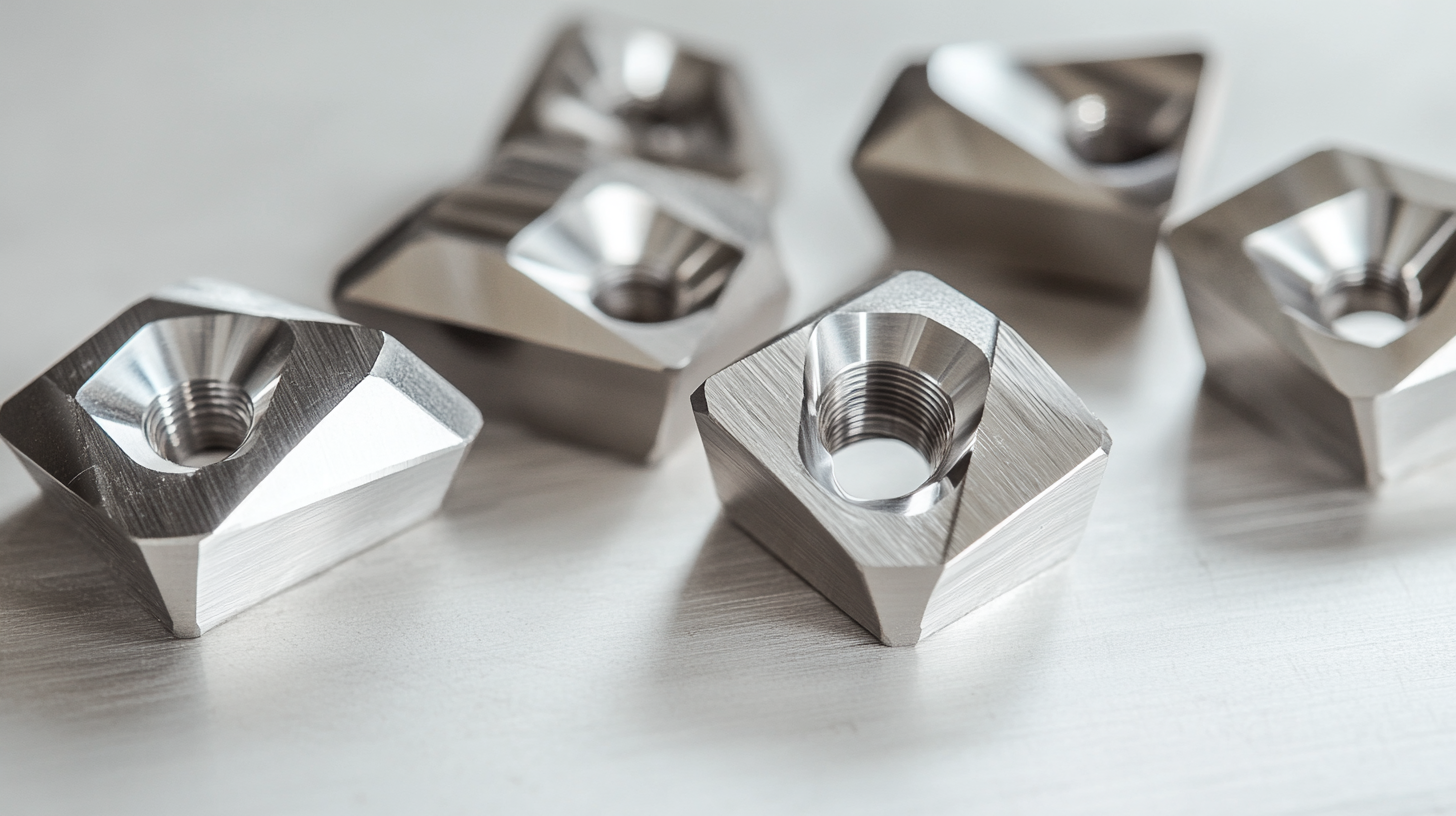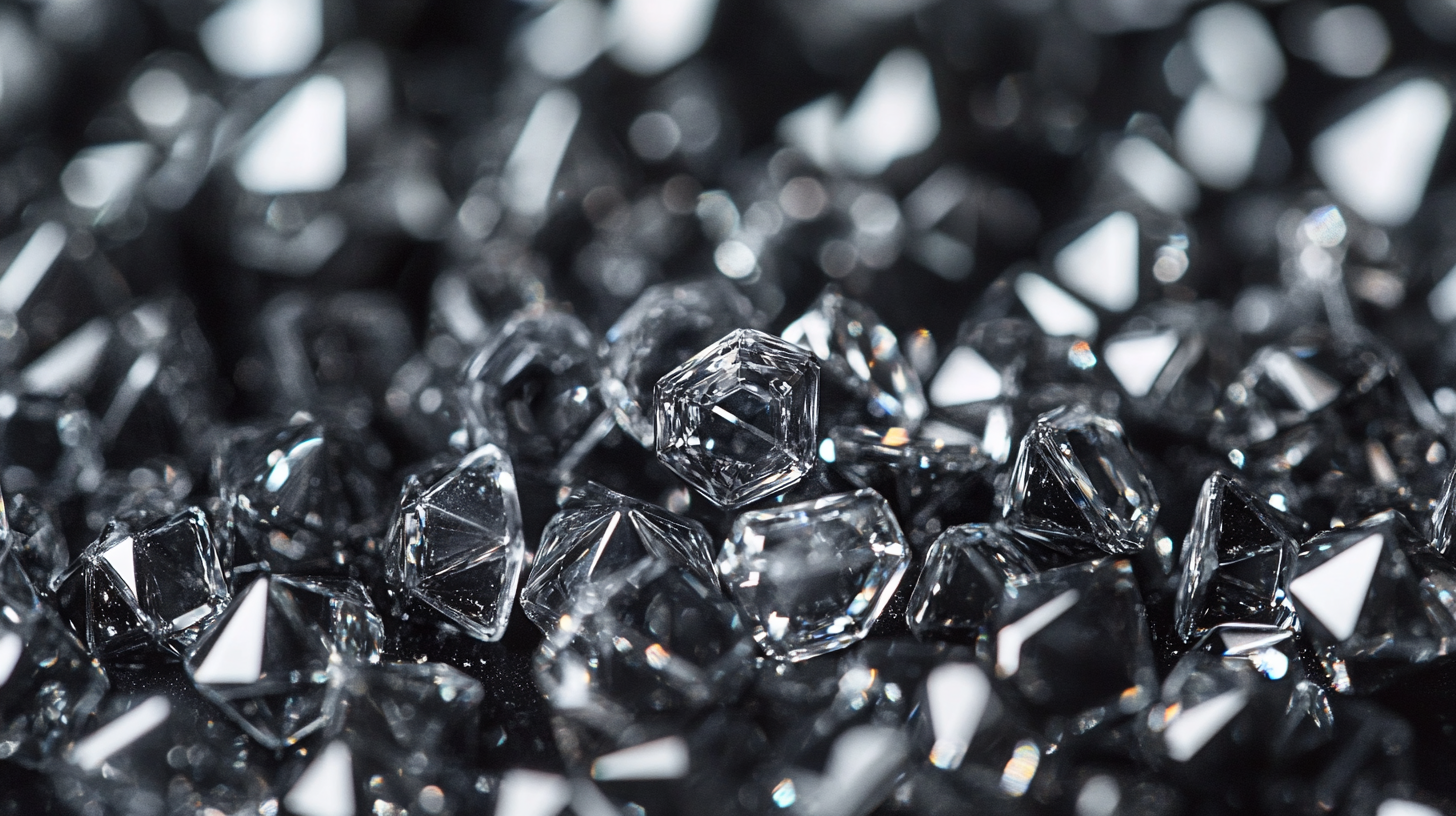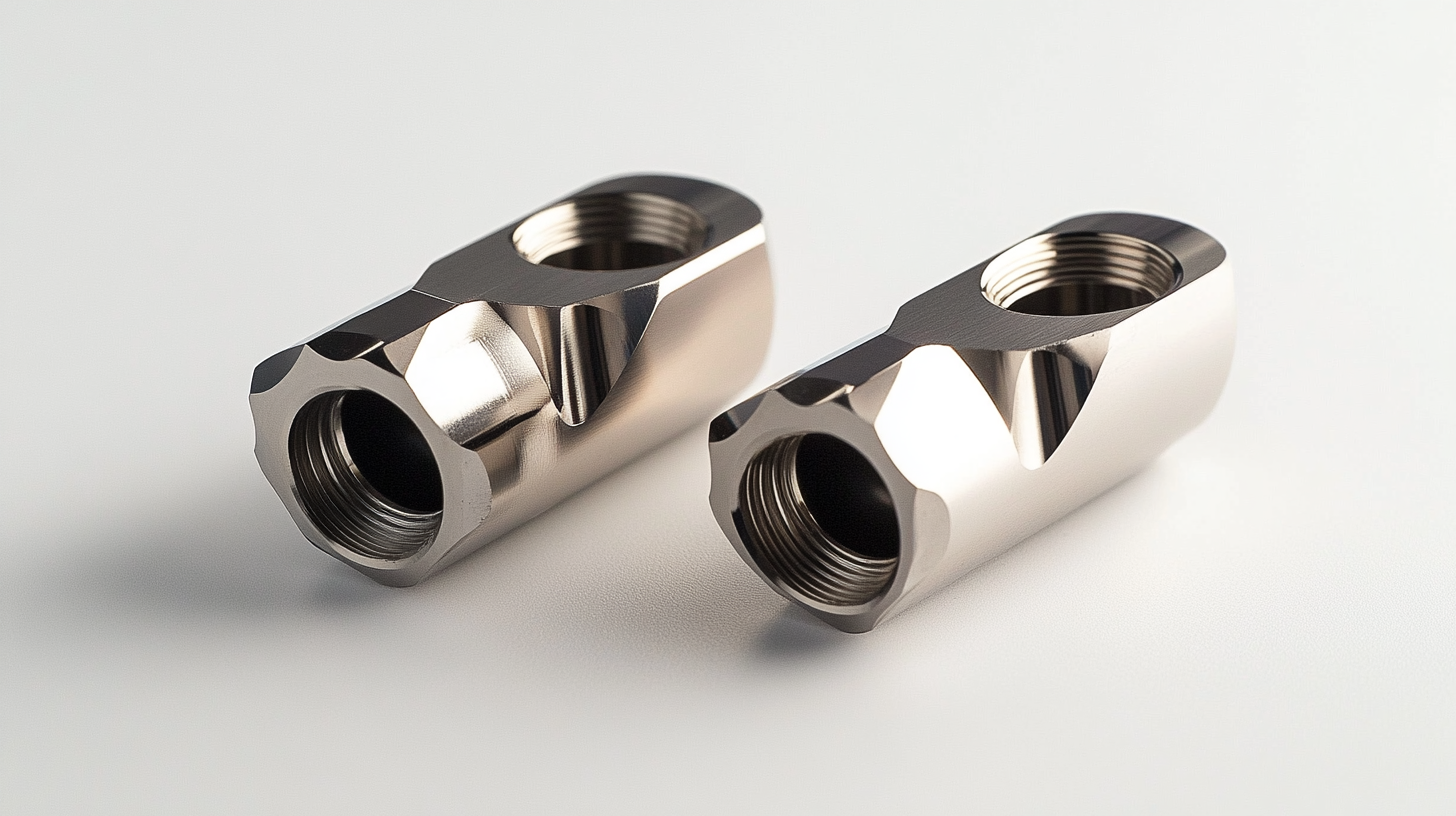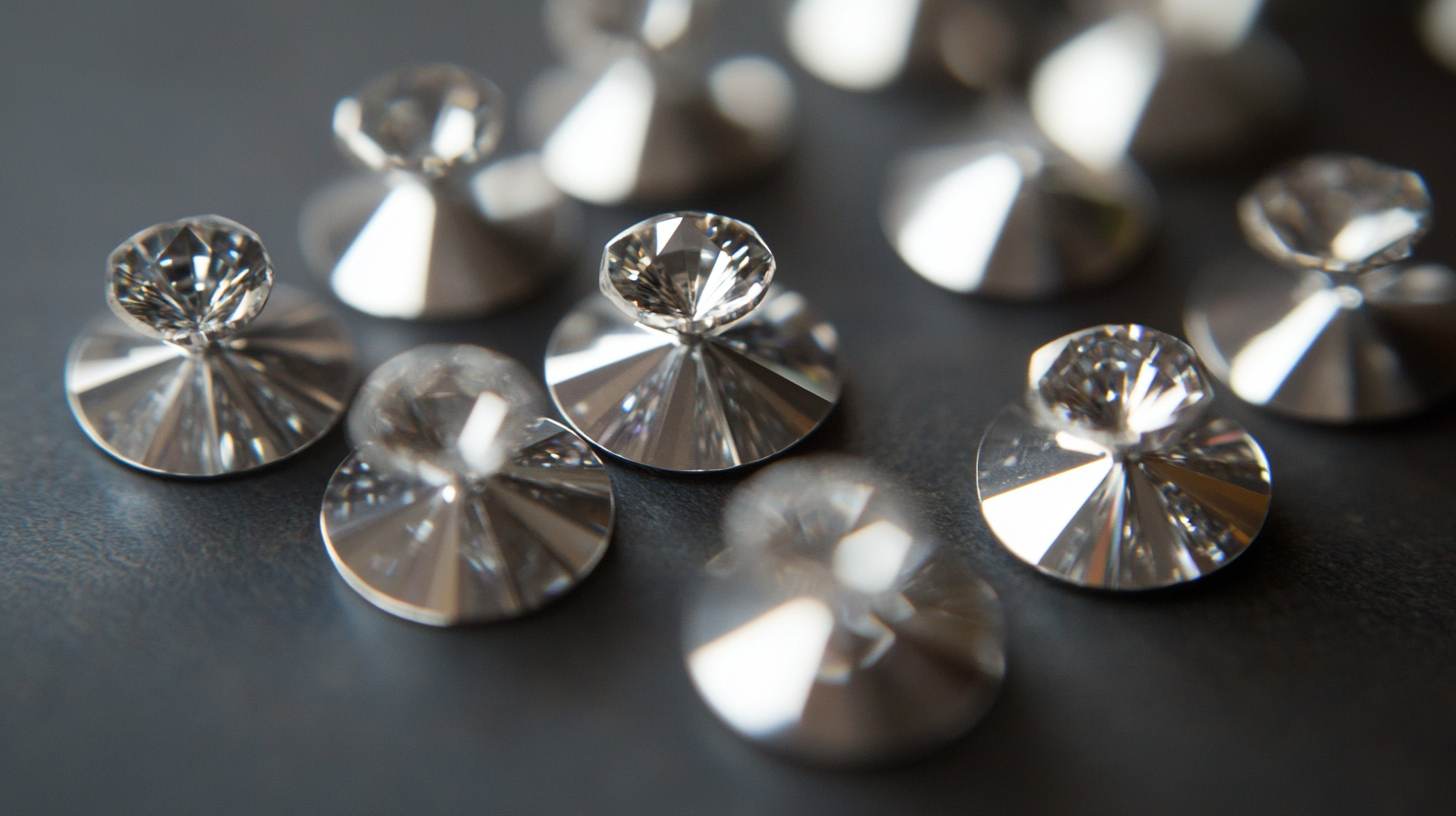
In today's rapidly evolving manufacturing landscape, precision machining has become a cornerstone for industries requiring exceptional accuracy and surface finishes. Among the many advancements in machining technology, Diamond Turning Inserts stand out as a revolutionary tool. These inserts, crafted from high-quality diamond materials, offer unparalleled performance and durability, making them ideal for machining complex geometries and critical components. As industries demand tighter tolerances and superior finishes, the adoption of Diamond Turning Inserts is proving to be a game-changer.
The unique properties of Diamond Turning Inserts not only enhance efficiency but also contribute significantly to cost savings and reduced tool wear. By incorporating these inserts into their machining processes, manufacturers can achieve higher productivity levels while ensuring that their products meet the stringent quality standards of today’s competitive market. This blog will explore the numerous advantages of utilizing Diamond Turning Inserts in precision machining, highlighting their impact on operational excellence, product quality, and overall industry advancements.

Diamond turning inserts have revolutionized the precision machining industry, particularly in achieving superior surface finishes. The inherent properties of CVD (Chemical Vapor Deposition) diamond coatings play a significant role in enhancing the performance of carbide inserts. Recent advancements have made it economically feasible to apply diamond films to these tools, allowing manufacturers to meet tighter tolerances while producing parts with exceptional roundness and straightness. Reports suggest that the use of diamond-coated inserts can increase tool life by up to 300%, thus reducing the frequency of tool changes and minimizing production downtime. Furthermore, the surface integrity achieved through diamond turning is critical for applications where finish quality is paramount. Research indicates that a finish boring step is essential to satisfy demanding standards for surface finish, often required in industries such as aerospace and automotive. This step not only enhances the aesthetic appeal of the components but also improves their functional performance. In precision machining, where even minor surface imperfections can lead to substantial issues, the capability of diamond turning inserts to deliver a mirror-like finish helps maintain a competitive edge. The shift towards indexable cutters has also been notable in the field of precision machining. These cutting tools are evolving from their traditional roughing applications to more refined finish machining tasks, indicating a broader acceptance of diamond turning technology. Industry data supports that transitioning to diamond-tipped cutting tools can result in significant reductions in cycle time and improved surface roughness metrics, further establishing the case for integrating diamond turning inserts in modern manufacturing processes.

In the realm of precision machining, the use of diamond turning inserts is increasingly recognized for its significant advantages, particularly in enhancing tool life and durability. These advanced inserts are designed to withstand the rigorous demands of machining hard materials, thereby extending their operational lifespan significantly compared to traditional tools. The unique properties of diamond, being one of the hardest substances known, enable these inserts to maintain their cutting edge for longer periods, reducing the frequency of tool changes and associated downtime in production processes.
Furthermore, the improved durability of diamond turning inserts leads to better performance in high-precision applications. As they minimize wear and tear during machining operations, these inserts help achieve tighter tolerances and superior surface finishes. This is crucial in industries where precision is paramount, such as aerospace and medical device manufacturing. With the ability to sustain sharpness over extended periods, diamond inserts also result in fewer tool failures, thus enhancing overall operational efficiency and contributing to lower manufacturing costs in the long run.
In addition to their effectiveness in maintaining tool integrity, diamond turning inserts also exhibit excellent thermal conductivity. This feature helps in dissipating heat generated during machining, which is vital for preventing thermal damage to both the tool and the workpiece. The combination of these superior characteristics not only optimizes machining performance but also signifies a shift towards more sustainable manufacturing practices by reducing waste and resource consumption associated with frequent tool replacements.

Utilizing diamond turning inserts in precision machining provides significant cost-effectiveness compared to conventional tooling methods. Research from the International Journal of Advanced Manufacturing Technology indicates that diamond tools can last up to 50 times longer than traditional tungsten carbide inserts. This longevity directly correlates to reduced tool replacement costs and lower labor costs associated with more frequent tool changes, making diamond inserts an attractive option for manufacturing operations focused on maximizing efficiency.
Moreover, the improved wear resistance of diamond inserts means that they maintain cutting performance over extended periods, reducing the variability and cost associated with machining quality. According to a report by the National Institute of Standards and Technology (NIST), the precision and surface finish achieved with diamond turning inserts can reduce secondary operations, such as polishing and grinding, by up to 40%. This reduction in post-processing not only saves on additional labor but also minimizes material waste, providing a further cost advantage.
Incorporating diamond inserts into the production process can also lead to increased machine utilization rates. A study by the Society of Manufacturing Engineers found that production environments using diamond tools experienced a reduction in downtime due to lower tool failure rates, thereby enhancing overall productivity. The ability to run machines for longer periods without interruptions can significantly bolster productivity, yielding higher output levels and ultimately leading to increased profit margins.

Diamond turning inserts have revolutionized precision machining by offering unmatched versatility across various materials. These inserts, coated with diamond film, demonstrate exceptional performance when utilized in processes requiring extreme precision and smoothness. The unique properties of diamond, including its hardness and thermal conductivity, enable these tools to effectively machine hard materials such as metals and ceramics, which are often challenging for conventional abrasives.
In addition to metals, diamond turning inserts can be applied to composite materials, plastics, and even glass-like substrates. Their performance in honing applications further highlights their adaptability, as they can remove material through abrasion while maintaining precision. The ability to achieve tight tolerances with diamond tools is crucial for industries such as aerospace, automotive, and electronics, where component integrity and surface finish directly influence performance.
The process of coating carbide inserts with diamond not only enhances their durability but also makes them a cost-effective option for manufacturers aiming to improve productivity without compromising quality. As technology advances, the use of diamond turning inserts is likely to expand even further, catering to a wider range of applications while delivering superior machining results.
The utilization of diamond turning inserts in precision machining significantly enhances production efficiency and throughput, bringing forth notable advancements in modern manufacturing. These inserts enable manufacturers to achieve incredibly tight tolerances and superior surface finishes, which are essential for high-quality output in competitive markets. By employing diamond turning technology, companies can reduce cycle times and the need for secondary operations, thereby streamlining their overall machining processes.
Incorporating cutting-edge technologies, such as AI and machine learning, further amplifies the benefits of diamond turning. Manufacturers can leverage data analytics to optimize tool paths and feed rates, ensuring that operations are performed at peak efficiency. This alignment of diamond turning inserts with AI-driven solutions leads to smarter production environments, capable of adapting to varying demands without sacrificing quality or throughput. As a result, organizations can not only meet but exceed customer expectations while effectively managing resources.
Moreover, the enhanced operational efficiency gained from utilizing diamond turning inserts resonates with the broader trends in manufacturing focused on innovation and sustainability. The integration of these advanced tools aligns with efforts to reduce waste and improve environmental performance, setting a foundation for a more agile and responsible manufacturing landscape. As the industry continues to evolve, the strategic use of diamond turning inserts will undoubtedly contribute to the pursuit of excellence in precision machining.





